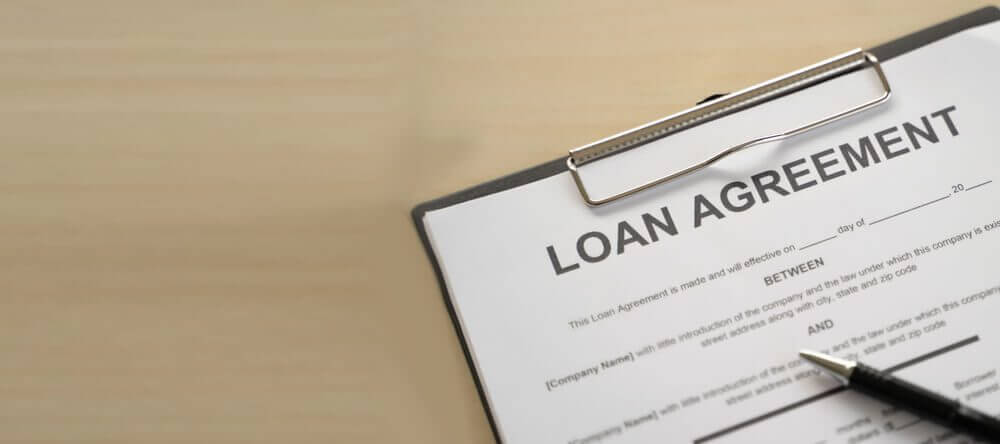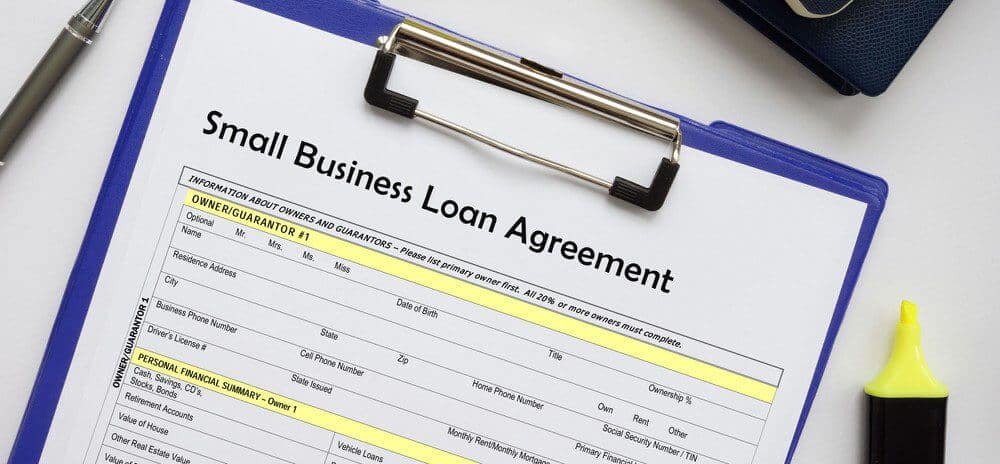Running a small business is never a simple endeavor. You have several moving parts to keep straight at all times, plus, you're probably often concerned about the state of your business's current cash flow and available working capital.
When funds get low, small business owners typically look to acquire funding so operations can continue running smoothly. But sometimes, small business loans require collateral to offset the risk lenders take on when offering cash to smaller companies.

What are SBA Loan Programs and Lenders?
In most cases, loans provided through SBA-approved lenders will call for various types of collateral, acting as a personal guarantee that the borrower will pay back the funds. The SBA, or Small Business Administration, is a federal agency that assists individual entrepreneurs and small operations in the United States looking for long-term business loans.
This agency is not a lender but a reliable resource pointing businesses in the right direction of small business funding. The primary loan programs offered include:
- Standard 7(a) Loans
- 7(a) Small Loans
- SBA Express Loans
- Export Express
- Veterans Advantage
- CAPLines
- CDC/504 Loan Program
- Microloans
These loan programs often require specific collateral to be eligible, no matter the kind of business funding you decide is best for your organization. Collateral acts as a personal guarantee from the borrower, essentially promising to pay back the business loan or forfeit your assets if repayment fails.
Lenders will look at the requested loan amounts and the form of collateral you have to offer before making a decision because they don't want the risk of a high loan-to-value ratio.
What is Loan-to-value (LTV) Ratio?
Loan-to-value (LTV) ratios are a snippet of information lenders evaluate to help determine their lending risk. The LTV refers to loan amounts versus the value of whatever collateral you offer.
In essence, loan-to-value ratios ensure the borrower can repay the loan. High LTVs are undesirable, but anything under 80% is typically seen as a favorable LTV.
Below, we discuss the ways to secure small business loans from SBA-approved lenders utilizing various assets and additional collateral.
How to Acquire a Small Business Loan Through the SBA?
First, let's clarify: acquiring SBA loans is not for the fainthearted borrower. These types of loans and financing options call for excellent personal credit history, fantastic business credit, time-consuming applications, a business plan, and collateral to obtain a business loan through an SBA-approved lender.
The US government created SBA loan programs to provide funding for small enterprises and help stimulate local economies. Since these programs are supplied through a government agency, the eligibility requirements are strict, and the application process is lengthy.
Put simply, although there are plenty of SBA loan programs to pick from, securing a business loan through this route is relatively slow, so be prepared to wait for this kind of business funding to be dispersed.
Pros and Cons of SBA Loan Programs
Like any other small business loan, the SBA's loan programs have unique advantages and drawbacks, making them a desirable option for some business owners and less favorable for others.
Let's take a look at the positive and negative aspects of acquiring funding from SBA-approved lenders:
Pros of SBA Loans:
- Substantial loan amounts
- Low-interest rates
- Excellent extended repayment terms
- Reliable lenders
- Use of funds is unlimited (when specified)
Cons of SBA Loans:
- Lengthy application process
- Written business plan required
- High personal credit standards
- Strict business credit requirements
- Long approval times
- Down payment required
- Collateral is needed
- Must specify the use of funds

Using Collateral to Secure a Small Business Loan
In many cases, collateral is needed to secure a loan, and it is almost always necessary when applying for small business loans through SBA-approved lenders. The types of collateral and amount of collateral each loan program requires vary depending on the loan amount.
For example, if your business receives funding of less than $25,000 from the 7(a) Loan Program, no collateral is necessary. Alternatively, lenders typically follow the exact collateral requirements for loans between $25,000 and $350,000 as those established for other small business loan options, often instituting blanket liens on all of the borrower's personal assets, including real estate.
When the loan amount exceeds $350,000, lenders will seek to obtain as much collateral as possible to mitigate potential risks. Lenders can utilize the collateral to meet repayment terms if you default on your loan. In short, they can seize your assets, so you definitely don't want to default on a small business loan.
Types of Business Collateral
Almost any secured loan will require collateral. Collateral can come in many forms, and there are a few different kinds of collateral borrowers can offer to banks, online lenders, and agency-approved lending outlets. Here are a few examples:
- Personal assets
- Business assets
- Real estate
- Equipment
- Vehicles
- Accounts receivable (invoice financing)
- Inventory
- Stocks
- Certificates of deposit (CDs)
- Corporate and treasury bonds
- Cash reserves
As the saying goes, cash is king, but using cash as collateral isn't always an option for small business owners. Instead, tangible items like real estate and equipment are used as collateral. Or, financial assets from accounts receivable financing, stocks, and bonds can also be utilized as collateral.
What Are Some Business Loan Collaterals for an SBA Loan?
Depending on your requested funding amount, collateral is needed to secure a loan from an SBA-approved lender. There are several different physical and financial assets from the list above that can be utilized as collateral for the loan you're applying for, including:
Real Estate Collateral
Real estate is easily the most common form of collateral to secure a business loan. As a borrower, you can utilize commercial real estate assets as business collateral or pledge personal real estate assets and home equity to help secure a business loan.
Real estate is a popular collateral because a property’s worth typically doesn't deplete. If anything, real estate assets gain value over time, which is favorable for lenders if a borrower defaults on a payment. In that case, the property can be seized.
Providing personal or commercial property as collateral is an excellent way to ensure you qualify for a business loan from an SBA-approved lender.
Equipment
Every industry requires machinery or specialized equipment to perform essential job functions and keep daily operations running smoothly. Whether it's computers in an office, point-of-sale (POS) systems in a restaurant, or manufacturing equipment in a factory facility, machinery is essential to many businesses.
Equipment loans are an excellent financing tool for businesses looking to buy or lease machinery and tools, especially if they lack the loan collateral or credit standards necessary for other products. Instead of providing business collateral upfront, the equipment you purchase with the funds becomes collateralized through equipment financing. If you ever default on your loan, the machinery can be seized and utilized to meet repayment terms.
Funds from the loan can be used to purchase machinery such as:
- Computers, fax machines, printers, etc.
- Point-of-sale (POS) systems
- Commercial vehicle fleets
- Construction Equipment
- Manufacturing machinery
- Packaging and shipping machinery
- Hand tools and power tools
- And so much more
With this type of business financing, blanket liens are put in place to provide lenders with more security as they take on the risk of lending. In addition, blanket liens give banks and SBA-approved lenders the legal recourse required to seize all assets from the borrower in order to recoup their losses.
So, equipment financing using machinery as collateral is somewhat of a double-edged sword. This loan type is great because it allows business owners to obtain a loan even if they have bad credit, but it can also be why your business loses all of these assets if ever defaults on the loan.
Inventory
One type of collateral you may not have considered is inventory. You can offer your product stock as collateral for certain business loans from an SBA-approved lender, but the terms for purchase order financing of this kind may vary.
Inventory or purchase order financing is a fantastic way to utilize inventory as collateral. With this type of financing, your business takes out loans to purchase stock, with the intention of using the sale of that inventory to repay your loans. Inventory is one of the lesser-used kinds of loan collateral, but it can be incredibly advantageous.
Invoices
It might come as a surprise, but you can also use your unpaid invoices as collateral. Who could imagine that unpaid customer invoices could actually act in your business's benefit as a form of collateral for a business loan?
If you operate in an industry where a constant influx of invoices is expected, using your accounts receivable as collateral can be useful when you're hung up on cash flow issues.
Also known as accounts receivable financing, invoice financing is a simple way to free up cash from unpaid invoices to improve cash flow. SBA-approved lenders offer loans based on a percentage of your outstanding invoices, providing you with more working capital instead of waiting around for customer payments.
In addition, with accounts receivable as your collateral, you're much more inclined to seek out customer payments for the outstanding invoices. Like inventory, invoices are another one of the more unconventional options when it comes to collateral for loans.
Financial Assets
Financial assets such as stocks, certificates of deposit (CDs), and bonds can have a heavy impact as collateral for business loans. Securities and investment assets can be utilized as collateral to apply for loans from an SBA-approved lender because they can be bought and sold in capital markets.
Financial assets as collateral can help mitigate the risk your lender takes on in the event of approval.
Cash Reserves
If you're lucky enough to have cash on hand to utilize as collateral, you're already setting yourself up for success. As we said above, cash is king and often puts a borrower in a more favorable position when applying for funds or financing from an SBA-approved lender.
Substantial cash reserves as collateral when seeking a loan can show your creditworthiness and your ability to successfully manage revenue and business assets. With significant business collateral in the form of cash, you can count on SBA-approved lenders to take on the risk of supplying loans to your business.

Acquiring Loans Using Collateral Is Easier With AdvancePoint Capital
To review, the most common types of collateral accepted by SBA-approved lenders include personal and commercial properties, financial assets, invoices, inventory, machinery, and cash. Although obtaining funding from an SBA-approved lender isn't easy, the AdvancePoint Capital professionals can offer assistance.
We help you determine the type of loan program that will provide your business with the most benefits, plus the type of collateral required to secure your small business funding. Contact AdvancePoint Capital today to learn more about the kinds of collateral accepted to back up your creditworthiness with SBA-approved lending outlets.












